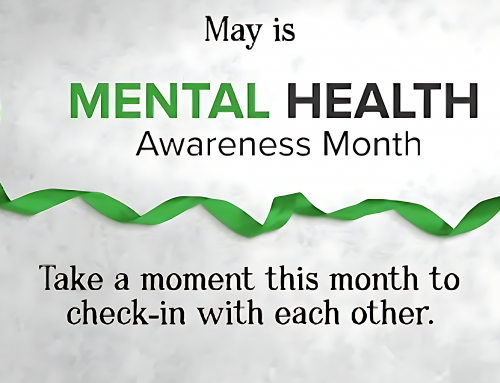In today’s fast-paced work environment, taking time to pause can feel difficult or even unproductive. Yet research shows that short intentional breaks can make a meaningful difference in how people think, feel, and perform. Microbreaks are brief pauses lasting from 30 seconds to 5 minutes that help the mind and body recover from continuous work. These small moments of rest support focus, reduce stress, and promote overall well being.
Microbreaks at work are becoming a key topic in discussions about employee wellness. Organizations that encourage employees to take just a few minutes to rest and stretch throughout the day often see measurable improvements in morale and performance. These small breaks have a significant impact on energy levels, creativity, and mental health.
Microbreaks Improve Focus and Productivity
One of the most compelling reasons to incorporate microbreaks into your routine is their ability to boost focus and productivity. Studies from the University of Illinois have demonstrated that brief mental breaks can prevent the brain from becoming desensitized to prolonged tasks [1]. This means that taking short breaks can help maintain a high level of attention and performance, essentially reengaging the brain and sharpening your focus.
Taking micro breaks also helps reduce mental fatigue, which often builds up after long periods of continuous work. When employees are able to pause for a few seconds or minutes, they can reset their cognitive function and return to work tasks with increased productivity. In fact, research shows that even a five minute break can make a positive impact on concentration and work related tasks.
Microbreaks Can Reduce Stress Levels
Stress is a common issue in the workplace, affecting a significant portion of the workforce. Microbreaks offer a simple yet effective solution to this problem. Research indicates that short breaks can lower heart rates and reduce stress [1].
Stress can accumulate when people sit for extended periods or focus intensely for long hours. Regular microbreaks throughout the day give the body and mind a chance to relax. Employers who encourage employees to take small breaks have reported improvements in job satisfaction and physical well being. These short pauses are an effective solution for both stress reduction and emotional balance.
By stepping away from your work for a few moments, you can alleviate tension and return with a calmer, more focused mindset. If you feel overwhelmed, depression therapy in Baltimore can help boost your mood.
Physical Health Benefits of Microbreaks At Work
Sitting for extended periods is associated with various health risks, including cardiovascular issues and musculoskeletal problems. Microbreaks encourage physical movement, helping to counteract the negative effects of prolonged sitting [2].
Simple activities like stretching or taking a brief walk can improve circulation and reduce the risk of health problems. Standing, rolling the shoulders, or walking a few steps helps reactivate muscles that have been still for too long. For office workers, this can reduce stiffness, prevent muscle tension, and lower the strain caused by sedentary behavior.. Over time, these mindful pauses can improve sleep quality, energy levels, and overall resilience.
Short Breaks Can Enhance Creativity and Problem-Solving
Sometimes, stepping away from a problem or task, even for a short time, can stimulate creativity and problem-solving. During a microbreak, your mind can make novel connections or come up with fresh ideas that may not have emerged when you were deeply engrossed in your work [2]. This can lead to more innovative solutions and a more dynamic approach to tasks.
Research in cognitive psychology supports this idea, showing that creativity often flourishes when the brain is given a brief period of rest. A short walk, a stretch, or even focusing on something unrelated to work can create the mental space needed for insight. Microbreaks at work also reduce cognitive overload, allowing the mind to reset before returning to complex work tasks. This balance between focus and rest helps sustain curiosity, flexibility, and problem-solving skills throughout the day.
Prevention of Burnout Through Microbreaks
Burnout is a state of physical and emotional exhaustion caused by chronic workplace stress. It often develops gradually, showing up as irritability, lack of motivation, or mental fatigue before leading to complete exhaustion. Regularly taking microbreaks can help prevent burnout by maintaining a healthier work-life balance [2]. These brief respites allow you to recharge and reduce the risk of becoming overwhelmed by your workload. Over time, consistent microbreaks help protect emotional health and sustain energy levels, creating a more balanced approach to daily work demands.
Better Mood and Well-Being
Microbreaks have a positive impact on your mood and overall well-being. Even brief moments of rest help regulate stress hormones and give the nervous system a chance to recover from continuous stimulation. Taking a moment to appreciate your surroundings, engage in a quick chat with a colleague, or simply enjoy a few deep breaths can uplift your spirits [2]. By paying attention to how short breaks influence mood and focus, individuals can build self-awareness and develop more sustainable habits for maintaining mental health. Receive more insight from the best therapists in Washington, D.C.
Scientific Studies Supporting Microbreaks
- Meta-Analysis on Microbreaks: A systematic review and meta-analysis published in PLOS ONE found that microbreaks significantly boost vigor and reduce fatigue. The study aggregated data from 22 independent study samples, involving over 2,300 participants. The findings highlight the positive impact of microbreaks on well-being and performance, particularly for tasks with lower cognitive demands.
- Attention and Performance: Research published in the journal Applied Cognitive Psychology demonstrated that short breaks improve attention and performance. In this study, university students who took a five-minute break during a 45-minute task performed better than those who did not take a break [2]. This suggests that even brief pauses can help maintain high levels of cognitive function.
- Psychological Benefits: The American Psychological Association (APA) has explored the psychological benefits of breaks, including microbreaks. Their research indicates that regularly detaching from work tasks can restore energy in the short term and prevent burnout in the long term [2]. This aligns with the idea that breaks function both as prevention and intervention for workplace stress.
How to Incorporate Microbreaks into Your Routine
Incorporating microbreaks into your daily routine is simple and can be tailored to fit your specific needs. The key is consistency. Building short pauses into your schedule helps make rest a natural part of the workday instead of something you do only when you feel overwhelmed. Here are a few tips to get started:
- Set a Timer: Use a timer or an app to remind yourself to take breaks at regular intervals.
- Stretch: Stand up and stretch your muscles to improve circulation and reduce tension. Gentle shoulder rolls or neck stretches can release muscle tightness that builds during long periods of focus.
- Walk: Take a short walk around your office or home to get your blood flowing. Even a minute or two of movement can lift energy levels and clear mental fog.
- Mindfulness: Practice mindfulness or deep breathing exercises to calm your mind. If possible, look away from screens during these moments and focus on your breath or your surroundings to help reset attention.
- Hydrate: Use your break to drink water and stay hydrated.
Experiment with different types of breaks until you find what works best for you. Some people benefit from silence and breathing, while others recharge through brief social interactions or movement. By integrating these small pauses into your workday, you can experience the profound benefits of microbreaks and enhance both your productivity and well-being. So, next time you feel the urge to power through without a break, remember that sometimes, less is more.
Reconnect, Recharge, and Thrive: One Break at a Time
Small changes can make a big difference in how you feel at work and at home. If you’re noticing signs of stress, fatigue, or burnout, our therapists in Columbia, Maryland and Washington, D.C. can help you restore balance and build healthy habits that support both your focus and your well-being. At Focused Solutions, we combine evidence-based counseling with practical strategies such as mindfulness, stress management, and resilience training to help you feel grounded and re-energized.
Take a moment for yourself today. Contact us to schedule an appointment or learn more about how our therapists can support your journey toward greater calm, clarity, and connection.
References
[1] “Give me a break!” A systematic review and meta-analysis on the … – PLOS
[2] Give me a break – American Psychological Association (APA)
[3] https://doi.org/10.1371/journal.pone.0272460
References
[1] “Give me a break!” A systematic review and meta-analysis on the … – PLOS
[2] Give me a break – American Psychological Association (APA)








